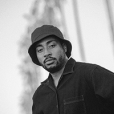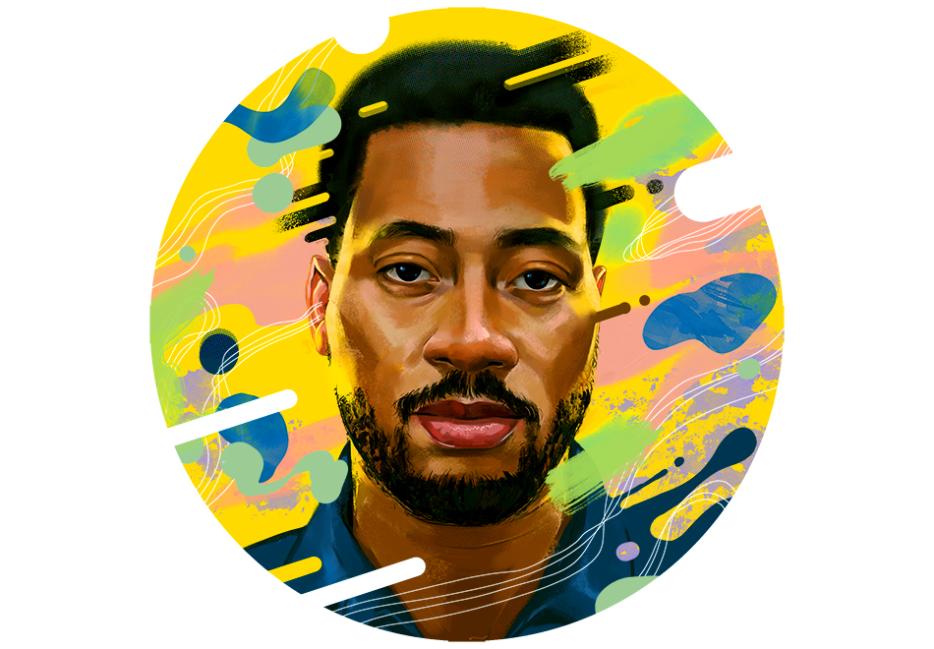Welcome to Mind in Bloom, a column deconstructing current events, music and art.
Travis Scott is a musician who learned early on that the purpose of a musical collaboration is actually similar to that of a brand collaboration. Scott came into the rap game with 2013’s Owl Pharoah mixtape in tow, featuring cosigns from 2 Chainz and T.I. that boosted his name recognition and gave him the kind of instant credibility that had fans calling him an industry plant. As his album releases piled up and garnered more attention, Scott went on a feverish world domination campaign where he seemingly linked up with every company on the planet.
Scott has collaborated with Nike, Helmut Lang, Maharishi, Ksubi, Saint Laurent, Hot Wheels, Dior, Evisu, Houston Astros, Nerf, A Bathing Ape, Reese’s Puffs, Houston Rockets and Sony PlayStation, among others. He put on a virtual Fortnite concert where he performed inside of the game. McDonald’s launched the Travis Scott Meal in 2020, making hip-hop’s “Keep It Real” era immediately feel like a distant bygone memory. A walking brand activation, Travis Scott is the poster boy for the crassly commercial times we live in, the perfect soundtrack for a social media era where human beings proudly refer to themselves as brands.
This synergy has made him fabulously wealthy and one of the world’s most famous people. His career is a case study in what could happen if one said yes to every offer. But with opportunity there can often be contingencies lurking in the background: he’d be rewarded with untold wealth, as long as he didn’t do anything to fuck up the money for the panoply of corporations he was beholden to.
Travis Scott has long had a complicated relationship with crowd safety. In the 2019 Netflix documentary Travis Scott: Look Mom I Can Fly, there's a montage of fainting crowd members being removed from his audiences. The film glorifies the danger surrounding his shows. One fan with crutches and a leg boot is filmed happily saying, “I survived, it’s all good!” Travis calls his fans “ragers” and routinely works them into a frenzy that treads the line between a hardcore punk show and a Jackass episode. He has been twice charged by police for inciting crowds to ignore security and rush the stage.
In the film, we’re shown a security briefing before one of Travis’s shows with a person from his team warning about the physical pressure that his fans can exert on each other during a show. Travis occasionally encourages his supporters to jump from great heights during his sets. He was sued in 2017 after a fan was paralyzed after being pushed off a balcony into the crowd below. On his 2018 song "STARGAZING," he brags, "It ain’t a mosh pit if ain’t no injuries.” But in the film, he stops a Lollapalooza performance to make sure hurt fans get medical attention and frets after hearing that some kids might have been injured at another one of his events.
Ten young people were killed during a crowd surge at Travis Scott’s Astroworld Festival performance at NRG Park in Houston, Texas on November 5, 2021. A month later, Scott made a contrite appearance in an interview with Charlamagne tha God and subsequently left the spotlight for over a year. Which leads us to his new release UTOPIA: a paint-by-numbers Event Album that gives us no further insight on what it might be like to be in Travis’s Nikes after that fateful night in Houston.
This was a festival that he put on in his hometown with a giant replica of his head at the front gate where ten young people died after being violently crushed while he was performing on stage. A moral panic was pointed in his direction from the media. His sponsors distanced themselves. The lawsuits started coming. He had a breakup with the mother of his children. This specific situation has likely never happened to anyone else in human history. Certainly, this might be interesting territory to mine artistically, should one be inclined to do so.
Other than one line (“If they just knew what Scotty would do to jump off the stage and save him a child”) and some vague platitudes about God and the devil, this seismic event in Travis’s life isn’t addressed on the album. Perhaps he avoids discussing it for reasons of legal culpability. But Travis Scott isn’t an artist known for deep self-examination either. You can’t be self-reflective if who you really are isn’t clear in the first place.
Like a social media app cannibalizing key features from a competitor, Travis has become known for assimilating the qualities of others and assuming them as his own, the rap version of Rogue from X-Men. On UTOPIA, he proudly refers to himself as “the human Pinterest.” His nickname La Flame comes from Gucci Mane La Flare. His ad lib "Straight up!" came from Future's 2012 song of the same name. The name of his label Cactus Jack is taken from a Mick Foley wrestling character. He’s been accused of stealing his look from A$AP Rocky. On his 2018 masterpiece ASTROWORLD, this mimicry briefly coalesced into a singular mix of top tier craftsmanship that was light on introspection but undeniably pleasurable.
Down to the prog rock samples, UTOPIA closely follows Kanye West’s stadium rap template, sometimes literally reworking unreleased Ye beats and songs to the point where it feels as if we’re getting Trojan horsed new West material via Travis at a time when Ye can’t release it himself. Listeners have compared UTOPIA to Yeezus.
There are some superficial similarities: "CIRCUS MAXIMUS" is a defanged rehash of "Black Skinhead" and “MODERN JAM” is a raw drum machine workout featuring the handiwork of Daft Punk’s Guy-Manuel de Homem-Christo that is reminiscent of “On Sight.” But Yeezus was transgressive, primal and scary. It felt high stakes, dangerous and risky. It provoked polarized reactions. In short, it was a work of art. UTOPIA is an incredibly detailed cubic zirconia, an exercise in presenting the illusion of depth.
Sonically, UTOPIA is an incredible technical achievement but in a way that recalls a staggering piece of architecture that serves no practical purpose. The hypnotically triumphant “TELEKINESIS” is carried by remarkable performances by SZA and Future. The delicate production on “MY EYES” and “PARASAIL” are highlights. The sound of the album is undeniably state of the art, but largely in the service of style over substance. Festooned with features, it's a star-studded summer blockbuster where the script doesn't give the actors anything interesting to do. Travis floats across the record like he’s a passenger in his own vehicle.
Travis Scott is emblematic of the Faustian bargain one makes when weaving themselves and their art too deeply with capitalism. You get too close to money and people start treating you like you’re a commodity to be bought and sold. Your value as a person becomes inextricably tied to your profitability. The crowd crush incident was an acute example of the capitalist premise that the suffering of some becomes less important in the face of profit for others. With Scott’s successful return to mainstream acceptance, we likely won’t ever learn how it felt to get so popular that it resulted in the real-time deaths of your biggest supporters.







